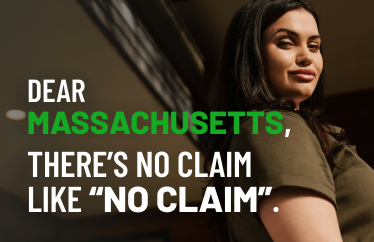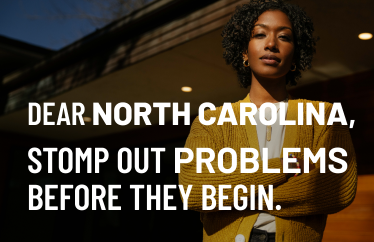Your rental property may need another insurance product.
Most homeowners understand that insurance is a necessity. If you’re renting your home out to a stranger, do you need more coverage than a standard homeowners policy provides? In many cases, the answer to that question is yes.
If you’re turning your home into a rental property, there’s a good chance that you’ll need additional protections, like loss of income coverage. Renting a home without it could expose you to serious financial and legal risks. Read on to learn about the different types of insurance policies for landlords. Our guide will tell you exactly what you need to do to protect yourself and your property.
What homeowners insurance does (and doesn’t) cover
Homeowners insurance is designed to protect owner-occupied properties. An HO-1 policy is the “bare bones” option. It only provides coverage against 11 disasters (or perils). In some states, these policies have been banned because of the limited coverage they offer. HO-2 policies provide coverage against additional perils, including frozen pipes and falling objects. HO-3 policies are the most popular homeowners insurance plans. They provide coverage for the structure of a home and the belongings within it. They also offer personal liability coverage.
Suppose you own a multi-family home and live in one of the units. In that case, your homeowners policy will likely provide enough coverage for the entire building, your personal belongings and potential exposure to liability claims. CLICK TO TWEET
Suppose you own a multi-family home and live in one of the units. In that case, your homeowners policy will likely provide enough coverage for the entire building, your personal belongings and potential exposure to liability claims. You can also get an endorsement or rider to cover the additional risks of sharing your property with tenants.
According to the Insurance Information Institute, some insurance providers allow homeowners policies to cover short-term rentals, as long as the company knows about the temporary tenants. For long-term rentals (like turning your house into a vacation home or an investment property), you’ll need a different insurance policy. In those instances, your home is more than an asset. When a home becomes a source of revenue, a property owner needs protection against additional perils. That’s where landlord (or dwelling) policies come in.
All about rental dwelling policies
Rental dwelling policies protect non-owner-occupied homes. There are three different types of landlord insurance policies: DP-1, DP-2 and DP-3. The standard DP-3 insurance policy is the most comprehensive type of insurance for rental property owners. It provides a level of coverage similar to what’s offered under the typical HO-3 policy for homeowners. A DP-3 policy covers most perils, including theft and vandalism. DP-3 policies also include liability coverage. So if a tenant or guest is injured, you can turn to your insurance provider when you need help covering legal fees and medical expenses.
While DP-1 and DP-2 policies don’t offer coverage for contents within a rental property, DP-3 policies protect items that a landlord might provide, like appliances and maintenance tools. In addition to loss of use, the standard DP-3 policy also has a provision for loss of rental income. If it becomes unsafe for guests to live in your rental property, you’ll still have a source of income that you can rely on while you repair your property.
Since dwelling fire policies primarily protect rental properties, they tend to provide less personal property coverage than homeowners insurance policies offer. On the bright side, DP-3 insurance is normally considered to be replacement cost insurance. Your home insurance should cover the total cost of repairing and replacing your dwelling.
Determining the cost of landlord insurance
Landlords can expect to pay roughly 20% to 30% more than what homeowners pay for insurance. Insurers are more likely to receive claims from temporary tenants than from homeowners, so charging more for landlord insurance makes sense. CLICK TO TWEET
Landlords can expect to pay roughly 20% to 30% more than what homeowners pay for insurance. Insurers are more likely to receive claims from temporary tenants than from homeowners, so charging more for landlord insurance makes sense. By allowing renters to move into a property, insurers take on additional risk.
Here are some of the factors that affect the cost of landlord insurance:
- The size of the property and the number of rental units being insured
- The age and condition of the property
- The geographic location of the property
- The presence of a swimming pool, hot tub or another high-risk feature
- The type of guest staying in the rental property (short- or long-term visitor)
- The types of security features installed on the premises, like smart alarms, locks and cameras
- The specific policy and amount of coverage you’re purchasing
Whenever you’re shopping around for insurance, it’s best to get quotes from multiple providers. That’s important if you’re trying to find a policy that will provide enough coverage and meet your needs.
A note on renters insurance
Personal property coverage is usually limited with dwelling fire policies because most of the items inside rented properties aren’t owned by the homeowners. A tenant’s belongings are rarely covered under a landlord insurance policy. They are the tenant’s responsibility.
To reduce your liability and minimize potential conflict, consider requiring your tenants to purchase renters insurance. While renters insurance isn’t legally a requirement in the United States, you can add it as a stipulation in your lease. Asking your tenants to buy a renters insurance policy can bring you (and your guests) peace of mind. Insurance policies for renters are also surprisingly affordable. According to Insurance.com, coverage costs the average American renter about $17 per month.
Final word
Although landlord insurance is more expensive than a homeowners policy, it’s worth having because it provides extra protection. If you’re making money by renting out your property, you should think of it as a business, and protecting your business is vital.
If you’re concerned about insurance costs, see if you can qualify for a discount by bundling your landlord and homeowners insurance policies. Keep in mind that landlord insurance premiums can be written off come tax time.
Still have questions about homeowners insurance? Contact a Hippo specialist.




